- Home
- M. L. Buchman
Big Sky Ever After: a Montana Romance Duet
Big Sky Ever After: a Montana Romance Duet Read online
Big Sky Ever After
A Montana Romance Duet
M. L. Buchman
Grace Burrowes
Contents
About This Book
Big Sky Ever After
Don’t Miss a Thing!
Nathan’s Big Sky
Tartan Two-Step
Don’t Miss a Thing!
About This Book
Two Bestselling Authors / Two New Novels in Two New Series / One Big Sky
Welcome to Montana a land of fine whisky, big-spread ranches, and an open prairie of possibilities.
This duet came about when, after corresponding for years, M. L. and Grace finally met at a conference last summer. When they finally had a chance to sit, they talked for hours. One of the things they talked about was doing a project together.
M. L. Buchman is known best for his military romantic suspense and Grace Burrowes for her historical romances. It seemed an unlikely pairing at first, but the more they talked, the more exciting the idea of a collaboration became.
They discovered common ground in contemporary romance, a genre they both love and write in. Then the joke happened: they both had plans for a new series set in Montana.
You now hold the results of that unlikely beginning in your hands. We hope that you enjoy this project as much as we have.
-M. L. and Grace-
Big Sky Ever After
“Back Covers”
Nathan’s Big Sky by M. L. Buchman:
Chef Nathan Gallagher’s escape from New York lands him in the most unlikely of places: Montana. With his past dumped and his future unknown, he seeks something new. If only he knew what.
Former rodeo star and born-and-bred cattle rancher Julie Larson loves the land and the horses. The cattle and her three big brothers? Not so much. The cowhands and ranchers’ sons, even less. She rescues the lost chef, but will they find a future where their hearts can thrive under Nathan’s Big Sky.
Tartan Two-Step by Grace Burrowes:
Scottish whisky distiller Magnus Brodie’s long-anticipated bicentennial batch of whisky has been sabotaged. His sole hope to prevent financial disaster? Buy the Logan brothers’ Montana distillery. It’s the only way to secure Bridget MacDeaver’s services as a “cask-whisperer.”
Bridget refuses to sell her grandpa’s distillery, even to save her brothers’ ranch. When an old enemy threatens, her only ally is the man who’s determined to steal her grandpa’s legacy—and her heart!
Don’t Miss a Thing!
Sign up for M. L. Buchman’s and Grace Burrowes newsletters today and receive:
Release News and much more
* * *
http://mlbuchman.com/newsletter/
http://graceburrowes.com/contact/
Book I
Nathan’s Big Sky
a Henderson’s Ranch Romance by M. L. Buchman
To Gibson the dog, and the good friend who named him for one of my characters.
Also my thanks to my friends Pat and Donna for their guidance and stories.
Chapter 1
The silence was deafening.
Nathan gripped the crowbar-handle of his car’s jack so tightly that it hurt his hand but he couldn’t ease up. It was his sole hope of survival.
The only sound for miles on the emptiness of the Montana prairie was the hot-metal pinging of his cooling Miata sports car, lurched awkwardly to the roadside by a flat tire. The chill of the cold April evening almost hurt his lungs. The sun hadn’t quite set; instead it illuminated the clouds of his own breath like some horror movie with a fog machine turned on too high.
How was it that he’d come to this place to die?
Chefs were not supposed to die alone in the forsaken wilderness, they were supposed to have a butter-induced heart attack in the middle of a meal service. But the safety of his New York kitchen lay an impossible distance behind him. He’d bolted forty-eight hours ago, sleeping only a few fitful hours in Chicago before punching west as if all the hounds of hell were after him.
And they’d caught up with him in the form of a monster.
Two days to cross most of the country and now, like a gunslinger fated to his doom, he was going to be murdered in the emptiness of the Montana wilderness by the largest cow ever born.
It put Paul Bunyan’s mythically massive blue ox Babe to shame.
Purest black, it was an inkblot on the continuance of Nathan’s life.
Horns the length of a New York cabbie’s woes sprang from either side of its head, ending in points that looked sharper than his finest boning knife.
He’d hit Choteau, Montana, in the late afternoon for directions, as his little brother’s instructions had turned out to be utterly useless: “Henderson Ranch, just west of Choteau.” There wasn’t a single app on his phone that told him where the ranch might be. There’d also been no answer on his brother’s phone, but he was used to that. Apparently most of the ranch was beyond the pale of civilization and didn’t have reception. His brother had always been useless about answering the phone anyway, unless you were a pretty girl—them he’d always had a sixth sense for, even on a blocked number.
Maybe Patrick’s directions sucked because he was messing with his big brother. Or maybe it was because he assumed Nathan would never cross west of the Hudson River—which historically was a reasonable assumption—so it wasn’t worth the effort to be more descriptive.
A Choteau (Cho-toe that was almost Sho-toe) local had known the name, however. In a town only three blocks long, it made sense that he did. “Just go down the highway apiece until you hit Anderson’s farm. Can’t miss it. He has the last big white cow barn this side of Augusta. Take a right on the main road and go on until you’ve just about hit the mountains. Out onto the dirt a ways. That’ll set you in the right place.”
The “highway” was a narrow two-lane called Montana 287.
By the time Choteau was two miles behind him, he’d passed two Andersons, an Andersen, and an Andreassen. This driveway had no mailbox that he could see, but it had a big white barn and a road along one side of the property. The map on his cell phone said that Augusta was fifty miles ahead. Telling him “the last big barn before Augusta” counted as a local having fun chapping his ass. He must have taken one look at Nathan’s two-seater Miata and painted a little mental target on Nathan’s forehead—just as the monster cow now had one painted on Nathan’s life.
The turnoff road was a lane and a half wide. Nathan guessed that in its favor, it was paved and had an actual stop sign where it met the “highway.” Sunlight was streaming out the backside of the sign through several bullet holes. He wondered if someone was going to shoot him for being in a sports car instead of a pickup with a gun rack.
Did upstate New York even have roads like this one—not even two lanes wide and with no painted stripes? Or was that only legal west of the Mississippi? Manhattan and Long Island certainly didn’t. During his five years in Paris, he’d rarely been farther out than the Metro could carry him.
For thirty miles past the white cow barn, he drove unknowingly toward his doom as the mountains drew closer and closer. He kept assuming he’d reach them in another few miles and they insisted on teasing him just like his brother. After the unremitting flatness of the Great Plains, they had loomed tall and rough to the west as seen from Choteau. Now he was discovering that Australia wasn’t the only place that had an Outback.
The peaks kept growing bigger and climbing higher but the land remained flatter than the ocean off Coney Island on a hot summer’s day. The peaks’ jagged flanks were shrouded in snow despite it being April. He turned on the Miata’s heater as th
e sun settled toward the west, but he left the convertible top down because the view was so amazing. The blue sky arced forever over him until the mountains sliced it off like a kid’s construction project: sharp, jagged, unreal.
Each time he’d passed a ranch, he checked the name, but none said Henderson. He even pulled out his phone to check that he’d remembered it right—and almost drove his car into the gaping ditch. Not a good idea. For all he knew, there might not be another person down this road for a week. He’d seen a few tractors—which were far bigger than he thought they would be—far out in the fields, but no one else on the road.
With a crash and thud that made him check his rearview to see if he’d left an axle on the road behind him, the pavement ended.
“Out onto the dirt a ways.” Maybe the old-timer in Choteau hadn’t been completely chapping his ass.
He slowed down to preserve his suspension. A cloud of brown dust obliterated his past. If he wanted to turn around, he’d have to eat his own dust. That sounded like a properly cowboy-like metaphor for the last decade of his life. Two days ago he’d cut every tie to that past. If only he could figure out how that had led him to the Montanan Outback, he wouldn’t feel quite so overwhelmed at the moment. Twenty-eight years old and his life fit in a two-seater sports car—with room to spare. That might not be right, but it didn’t make it any less true.
For the last ten miles he’d been hoping to meet someone on the road to ask directions again. Or maybe how to escape, little knowing it would soon be too late.
The dirt road narrowed and then he actually hoped he didn’t meet anyone because he’d have to crawl to the side to get by them. Out here he wasn’t threatened by ditches anymore, they’d disappeared along with the pavement, but instead by barbed wire running close down either side of the dirt track. Not a chance that his Soul Red Metallic paint job would survive the encounter.
After a few miles of dodging potholes and gritting his teeth over washboard ripples, he started looking for a place to turn around. The road wasn’t wide enough to be sure he could turn even his small car without dinging it up.
He’d been climbing slowly since Choteau, and spring had turned back into winter. There was a bitter snap to the evening air that promised what looked like snow and ice up ahead…really was snow and ice up ahead. By this point the mountains were so high they looked as if they were going to roll over and land on him.
Manhattan didn’t have places like this. Neither did Paris, where he’d done his time at Le Cordon Bleu and three years servitude for Chef Guevarre—may his brutal training and magnificent palate both be in hell by now. There was something wrong about the flatness behind and the impossible mountains ahead.
Then, topping a low rise, facing straight into the setting sun, he was confronted by the beast from hell that was going to kill him.
He’d slammed on the brakes, skidding sideways on the washboard gravel, and barely managed to avoid hitting the cow. A tire caught in a pothole where it had blown with a loud bang that scared him almost as much as the creature of his doom had.
Now he stood in the middle of the road between his crippled car, pinging the last dying notes of its hot-metal song, and the monstrous black cow that was about to charge him. The damn thing didn’t so much as blink its malevolent eyes, as if it was trying to hypnotize him.
His only weapon choices were his chef’s knives, which would be very useful if the cow was already dead and butchered but not until then, and his car’s jack handle. Retreating into his car and pulling up the convertible’s roof would be pointless—this monster was so big it could practically step over the Miata. And the tips of its horns were actually wider than the car itself.
His ears rang with the silence, now broken only by a scuffing of one New York metro bus-sized hoof as the cow prepared to charge. Nathan had served a thousand roasts, ten thousand steaks, and this meal-still-on-the-hoof knew it. It had come to exact revenge for all of its spiritual forebears…fore-steaks?
The last thing Nathan was going to smell was the crackling dry grass of the prairie, the biting chill of the fast-approaching night, and the hot breath of the demon cow so big it seemed to block out even the vast expanse of the Montana sky. There had been fourteen hundred miles of flat since Chicago, but here, with his back up against the mountains, the vast horizon seemed far bigger than should be possible. His last-ever vision would be to actually see the curvature of the earth.
Then, impossibly, as if it wasn’t bad enough that his epitaph was going to read: Here a once-decent chef was trampled to death by a cow—trampled sounded like a marginally more pleasant way to go than gored—he heard a clip-clop sound coming from behind him.
He didn’t dare turn, because he knew the beast-cow would charge the moment he looked aside.
Still, the sound behind him grew.
Unable to stand it any longer—the sound was so close—he spun and raised his foot-long jack handle in one last desperate bid for life.
Backed by the sun, a silhouetted cowboy sat up on a horse even taller than the cow and looked down at Nathan from under the brim of his cowboy hat.
“What are you doing out in the road?”
Not cowboy, cowgirl. A soft voice, but no less disgusted for all that. Against the dazzling sun he could see that she wore cowboy boots, a heavy leather jacket, and had a rifle tucked close to hand.
Hope?
Maybe she could shoot the demon cow before it trampled, trompled, gored, or whatever demon cows did.
He tried to speak, but his throat was clogged dry with fear and road dust. The air was so dry it seemed to suck the moisture right out of him.
She rode around him and his car as if he wasn’t even there. “Go on now, Lucy. Scoot!”
A hell-beast named Lucy?
He’d had a great Aunt Lucy, but she hadn’t been very fierce—more the quiet and retiring type, which was perhaps inevitable beside her husband’s garrulous stockbroker charisma.
The woman rode her black-and-white patterned horse up to the “monster cow from hell” before he could warn her off.
Yet, in a startlingly sudden surrender, the gigantic animal turned and ambled back through a broken gap in the barbed wire fence that Nathan hadn’t noticed. As it walked, he recognized the scuffing sound that he’d thought proceeded a deadly charge—it was just the sound the cow made by walking.
After riding her horse through the gap as well, she then swung a long leg over the back of the saddle and came down out of the sky. Paying no more attention to him than if he was a bump in the road, she pulled out some tools and walked up to the fence.
He could only watch—numb with his unexpected last-second stay of execution and the biting cold—as she repaired the fence. It was only the work of minutes before she had three fine strands of barbed wire strung back up between the posts; her and the cow on one side and he and his broken car on the other. The flimsy wires had no chance of stopping a baby cow, never mind the hell cow Lucy, currently tearing at the low dead grass.
The woman had been towering in the saddle; on the ground she was still tall. Perhaps slender beneath the heavy leather jacket. Straight, light blond hair fell past her shoulders. Her cheeks were rosy with the cold, which he’d always thought was just a saying.
When she finished, he finally found his voice before she could disappear back into the landscape as eerily as she’d arrived.
“Excuse me, can you tell me how to get to Henderson Ranch?”
“I can,” he could just see her eyes beneath the wide brim of her cowboy hat. They were as brilliant blue as the sky and seemed to be laughing at him, though her mouth wasn’t. What was it with locals chapping his ass today?
“Would you mind telling me?”
“Not a bit,” and she let it hang long enough to make him sigh.
The failing sun caught the cloud of his breath in the chill air.
“You’re standing on Henderson land.”
“I am?” he looked down at the road, but it was keeping
its secrets to itself. “This doesn’t look like a ranch, it looks like a whole bunch of nothing.”
“It’s two ranches,” she sounded miffed by his description, which, he decided on review, hadn’t been the most tactful thing he’d ever said. “You’re standing on Henderson’s, but your passenger seat is on mine—property line runs up the middle of the lane. You’ve been on Mac and Ama’s land for the last five miles or so. If you’d like, I can chop your car in two and then you’ll be off my family’s land.”
“That’s okay. I like my car the way it is.”
“Even with the flat?”
“Okay, except for the flat.” Was this what passed for a sense of humor out here, or was she about to pull the rifle hanging on her horse’s saddle and make good on her offer—maybe shooting his poor car for trespassing before skinning it? Perhaps it would be safer if he kept her talking. “What are you doing way out here?”
“Riding the fence.”
He assumed that meant something to someone other than him, but he couldn’t figure out how to ask what. Her horse stepped up to her and rested its chin over her shoulder. She reached up a gloved hand and patted it on the cheek a couple of times.
“I was looking for different,” and it didn’t get more different than the woman in front of him.
“Thought you were looking for Henderson’s.”
“I was. I am,” and he was on the verge of being turned into a babbling idiot. He’d left New York looking for a change. For something he’d never done, someone he’d never been. Couldn’t get more different than a burned-out New York chef and a tall, blond cowgirl out “riding a fence” who had a horse for a pet.

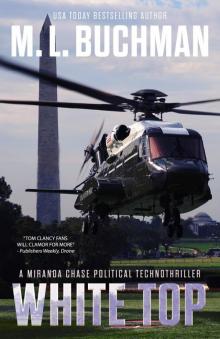 White Top
White Top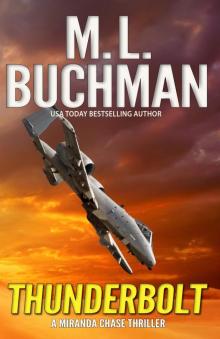 Thunderbolt
Thunderbolt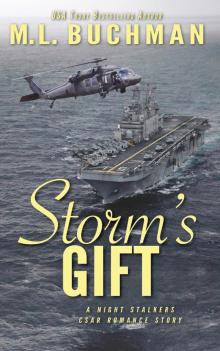 Storm's Gift
Storm's Gift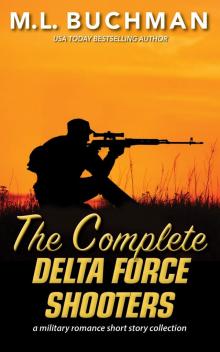 The Complete Delta Force Shooters
The Complete Delta Force Shooters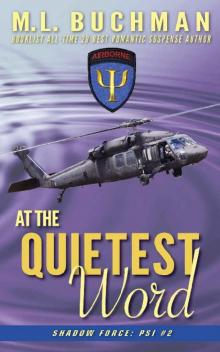 At the Quietest Word (Shadowforce: Psi Book 2)
At the Quietest Word (Shadowforce: Psi Book 2) At the Slightest Sound
At the Slightest Sound Dilya's Christmas Challenge
Dilya's Christmas Challenge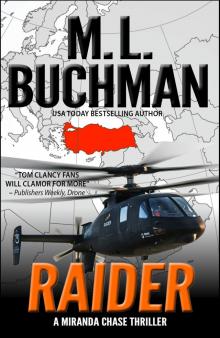 Raider
Raider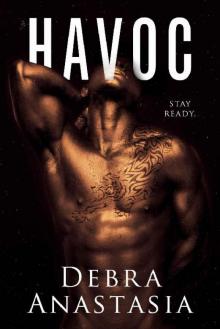 Havoc
Havoc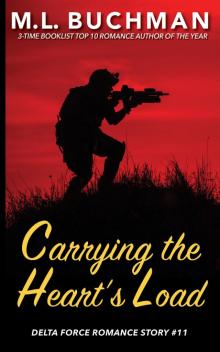 Carrying the Heart's Load
Carrying the Heart's Load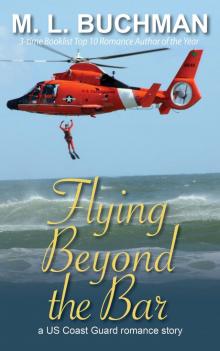 Flying Beyond the Bar
Flying Beyond the Bar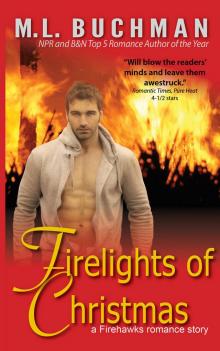 Firelights of Christmas
Firelights of Christmas Where Dreams Are Well Done
Where Dreams Are Well Done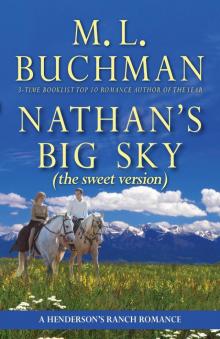 Nathan's Big Sky
Nathan's Big Sky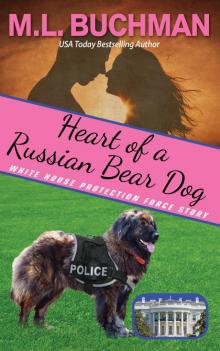 Heart of a Russian Bear Dog
Heart of a Russian Bear Dog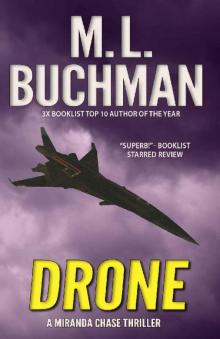 Drone: an NTSB / military technothriller (Miranda Chase Book 1)
Drone: an NTSB / military technothriller (Miranda Chase Book 1)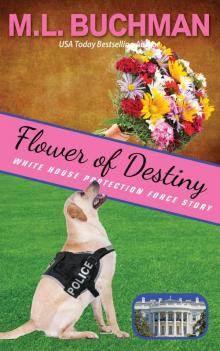 Flower of Destiny
Flower of Destiny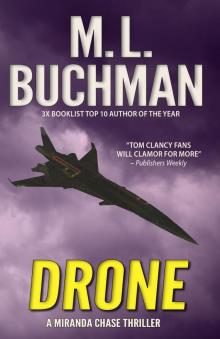 Drone
Drone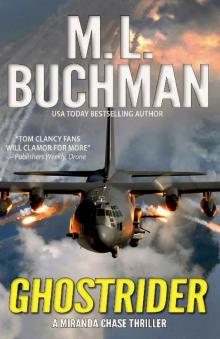 Ghostrider: an NTSB-military technothriller (Miranda Chase Book 4)
Ghostrider: an NTSB-military technothriller (Miranda Chase Book 4)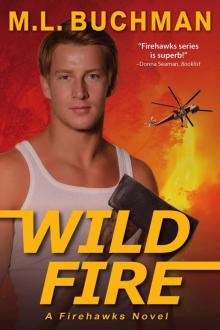 Wild Fire
Wild Fire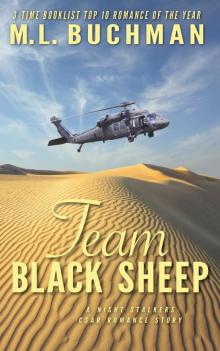 Team Black Sheep
Team Black Sheep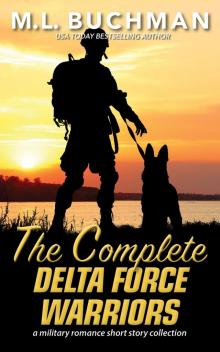 The Complete Delta Force Warriors
The Complete Delta Force Warriors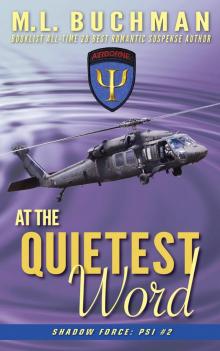 At the Quietest Word
At the Quietest Word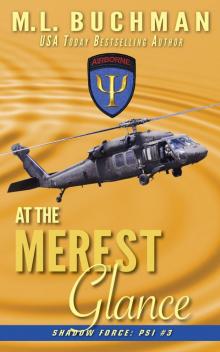 At the Merest Glance
At the Merest Glance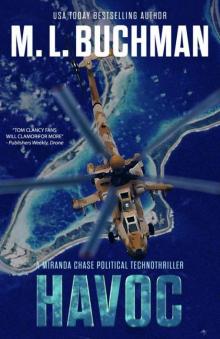 Havoc: a political technothriller (Miranda Chase Book 7)
Havoc: a political technothriller (Miranda Chase Book 7)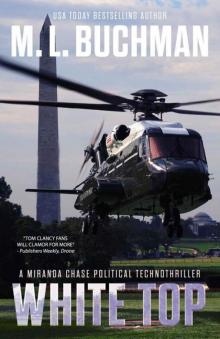 White Top: a political technothriller (Miranda Chase Book 8)
White Top: a political technothriller (Miranda Chase Book 8)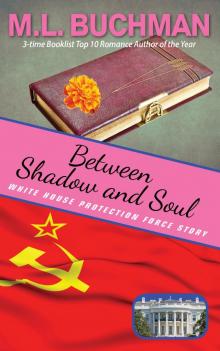 Between Shadow and Soul
Between Shadow and Soul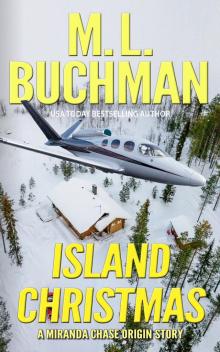 Island Christmas
Island Christmas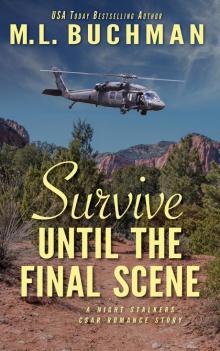 Survive Until the Final Scene
Survive Until the Final Scene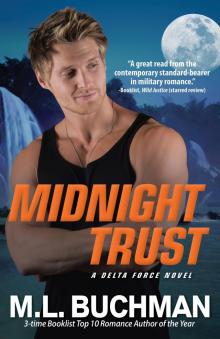 Midnight Trust
Midnight Trust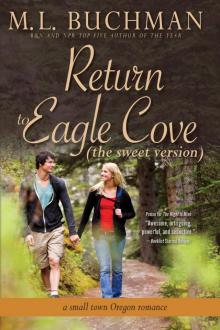 Return to Eagle Cove
Return to Eagle Cove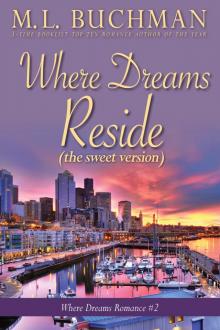 Where Dreams Reside
Where Dreams Reside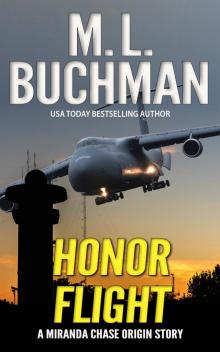 Honor Flight
Honor Flight Where Dreams Are Sewn
Where Dreams Are Sewn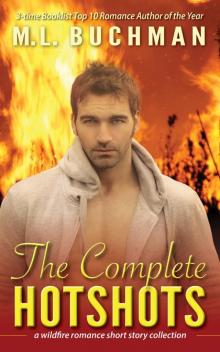 The Complete Hotshots
The Complete Hotshots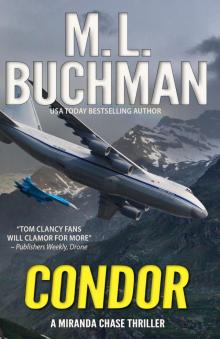 Condor
Condor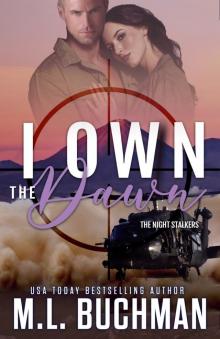 I Own the Dawn
I Own the Dawn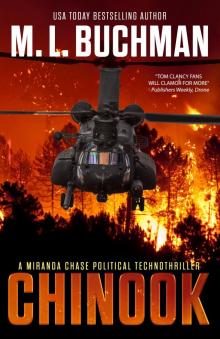 Chinook
Chinook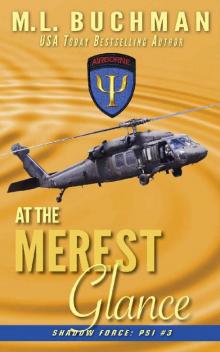 At the Merest Glance: a military paranormal romance (Shadowforce: Psi Book 3)
At the Merest Glance: a military paranormal romance (Shadowforce: Psi Book 3)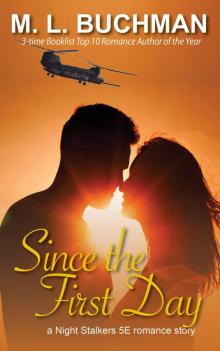 Since the First Day
Since the First Day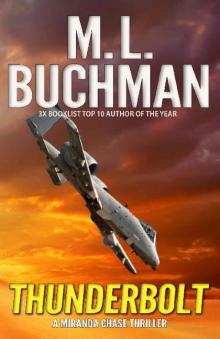 Thunderbolt: an NTSB / military technothriller (Miranda Chase Book 2)
Thunderbolt: an NTSB / military technothriller (Miranda Chase Book 2)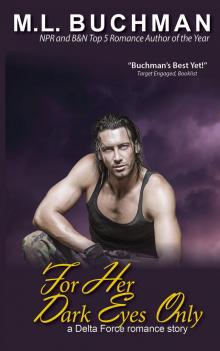 For Her Dark Eyes Only
For Her Dark Eyes Only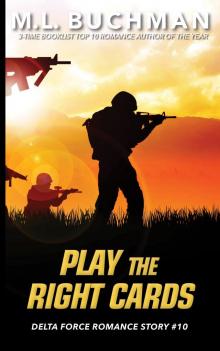 Play the Right Cards
Play the Right Cards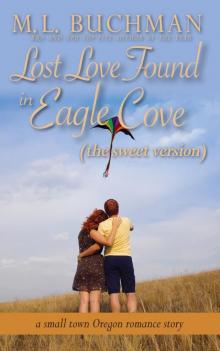 Lost Love Found in Eagle Cove
Lost Love Found in Eagle Cove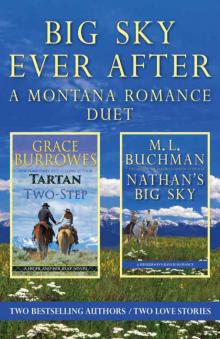 Big Sky Ever After: a Montana Romance Duet
Big Sky Ever After: a Montana Romance Duet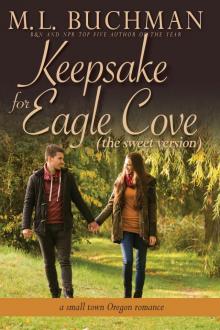 Keepsake for Eagle Cove
Keepsake for Eagle Cove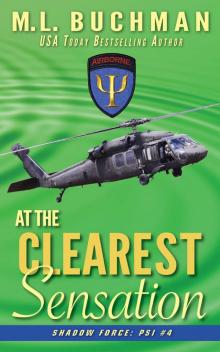 At the Clearest Sensation
At the Clearest Sensation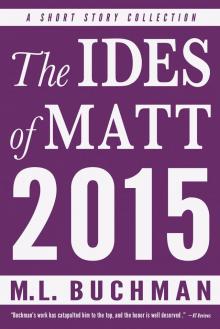 The Ides of Matt 2015
The Ides of Matt 2015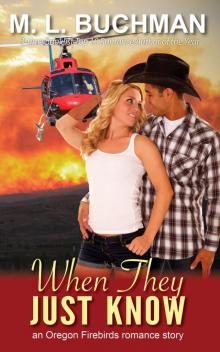 When They Just Know
When They Just Know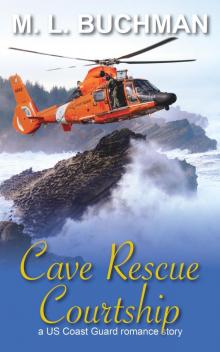 Cave Rescue Courtship
Cave Rescue Courtship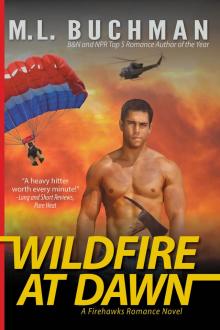 Wildfire at Dawn
Wildfire at Dawn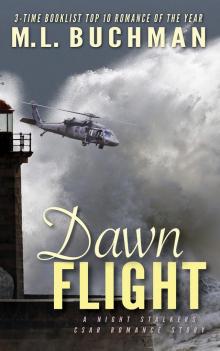 Dawn Flight
Dawn Flight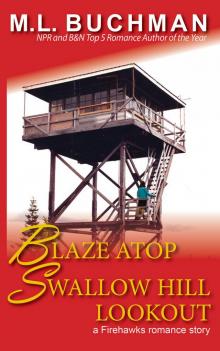 Blaze Atop Swallow Hill Lookout
Blaze Atop Swallow Hill Lookout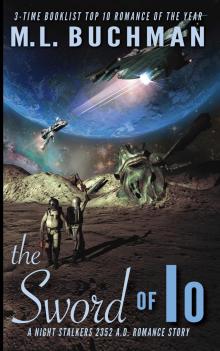 The Sword of Io
The Sword of Io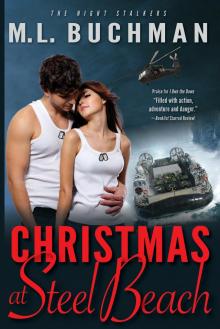 Christmas at Steel Beach
Christmas at Steel Beach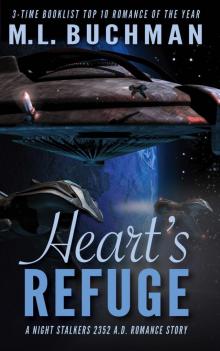 Heart's Refuge
Heart's Refuge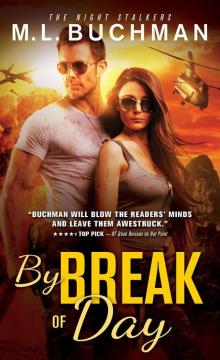 By Break of Day (The Night Stalkers)
By Break of Day (The Night Stalkers)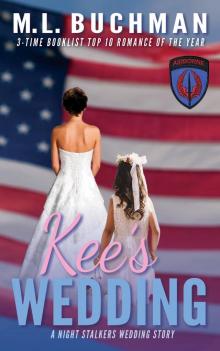 Kee's Wedding
Kee's Wedding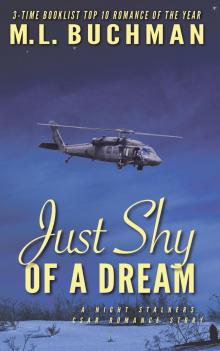 Just Shy of a Dream
Just Shy of a Dream Path of Love
Path of Love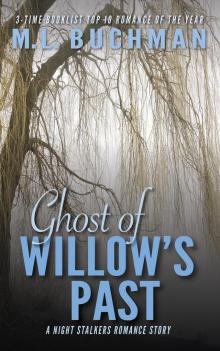 Ghost of Willow's Past
Ghost of Willow's Past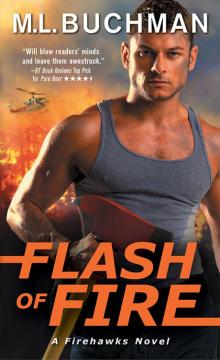 Flash of Fire
Flash of Fire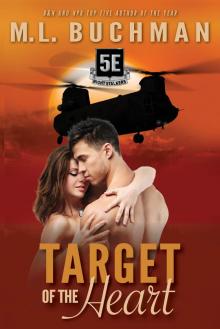 Target of the Heart
Target of the Heart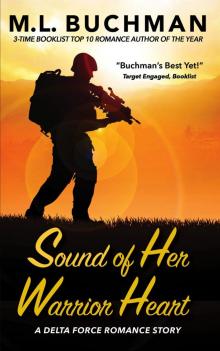 Sound of Her Warrior Heart
Sound of Her Warrior Heart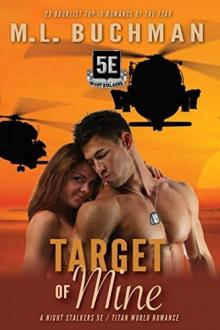 Target of Mine: The Night Stalkers 5E (Titan World Book 2)
Target of Mine: The Night Stalkers 5E (Titan World Book 2)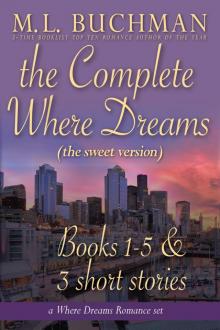 The Complete Where Dreams
The Complete Where Dreams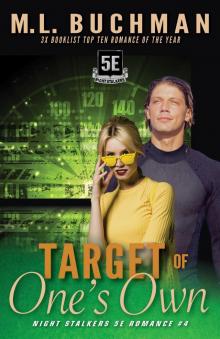 Target of One's Own
Target of One's Own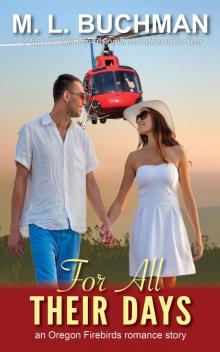 For All Their Days
For All Their Days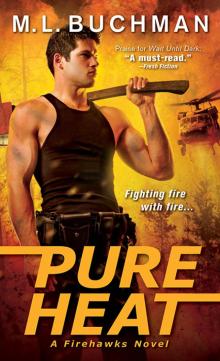 Pure Heat
Pure Heat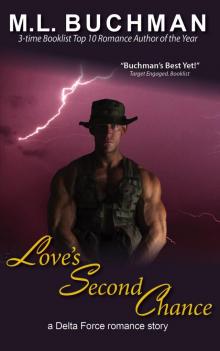 Love's Second Chance
Love's Second Chance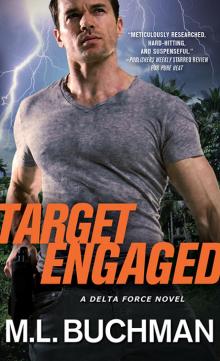 Target Engaged
Target Engaged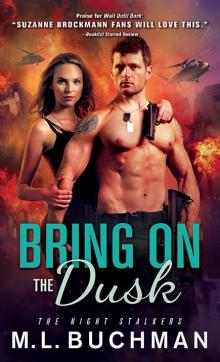 Bring On the Dusk
Bring On the Dusk Wait Until Dark (The Night Stalkers)
Wait Until Dark (The Night Stalkers)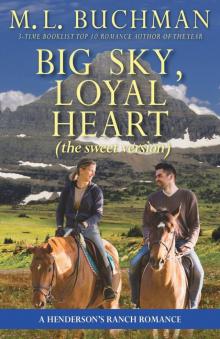 Big Sky, Loyal Heart
Big Sky, Loyal Heart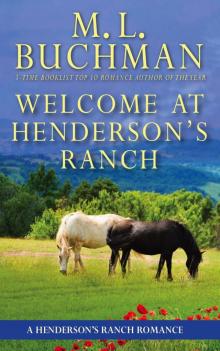 Welcome at Henderson's Ranch
Welcome at Henderson's Ranch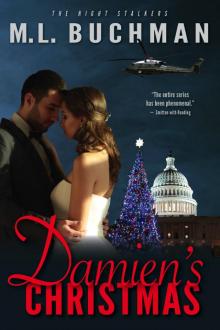 Damien's Christmas
Damien's Christmas Flight to Fight
Flight to Fight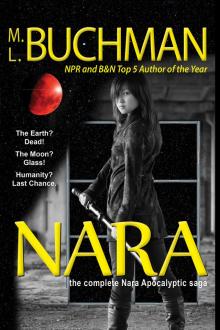 Nara
Nara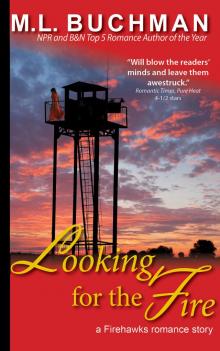 Looking for the Fire
Looking for the Fire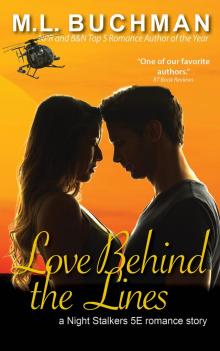 Love Behind the Lines
Love Behind the Lines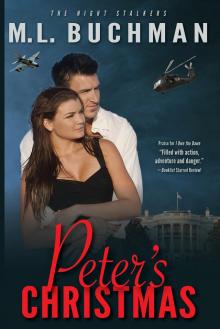 Peter's Christmas
Peter's Christmas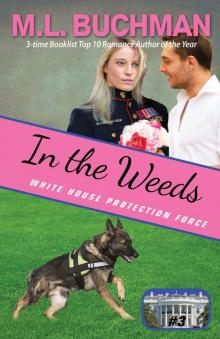 In the Weeds
In the Weeds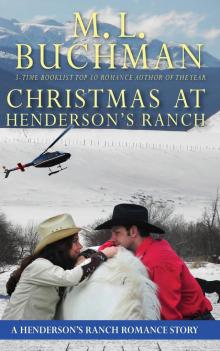 Christmas at Henderson's Ranch
Christmas at Henderson's Ranch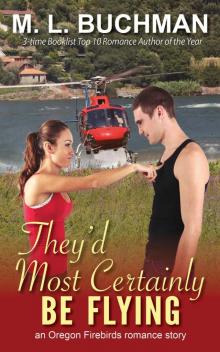 They'd Most Certainly Be Flying
They'd Most Certainly Be Flying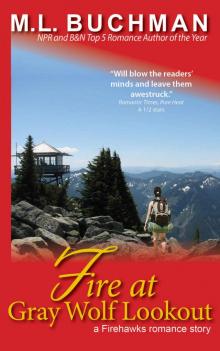 Fire at Gray Wolf Lookout (Firehawks Book 8)
Fire at Gray Wolf Lookout (Firehawks Book 8)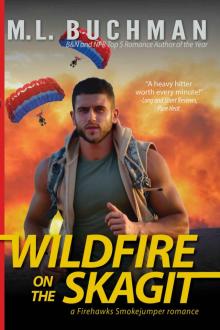 Wildfire on the Skagit (Firehawks Book 9)
Wildfire on the Skagit (Firehawks Book 9)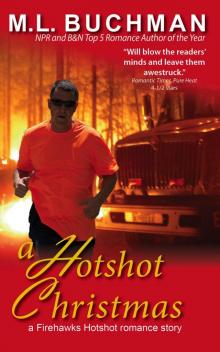 A Hotshot Christmas
A Hotshot Christmas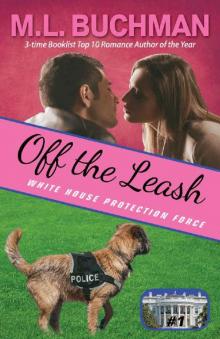 Off the Leash
Off the Leash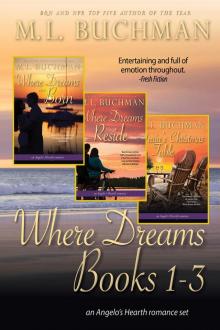 Where Dreams Books 1-3
Where Dreams Books 1-3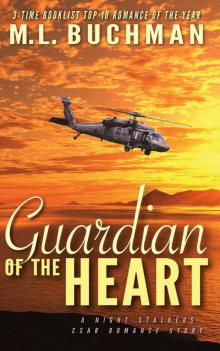 Guardian of the Heart
Guardian of the Heart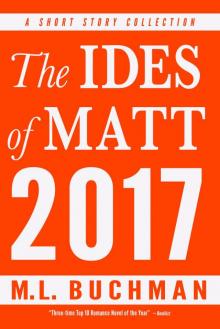 The Ides of Matt 2017
The Ides of Matt 2017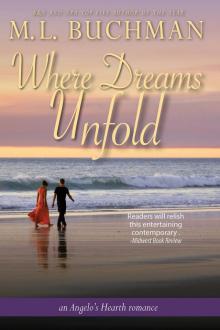 Where Dreams Unfold
Where Dreams Unfold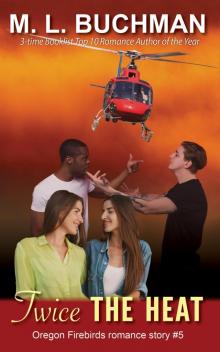 Twice the Heat
Twice the Heat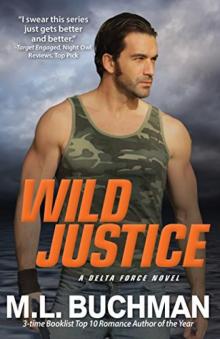 Wild Justice (Delta Force Book 3)
Wild Justice (Delta Force Book 3)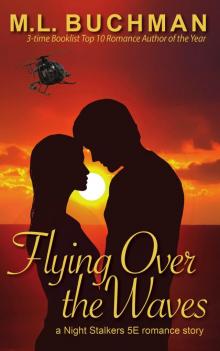 Flying Over the Waves
Flying Over the Waves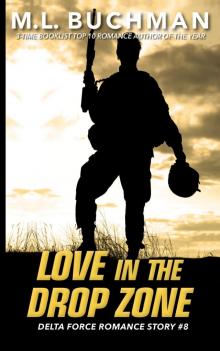 Love in the Drop Zone
Love in the Drop Zone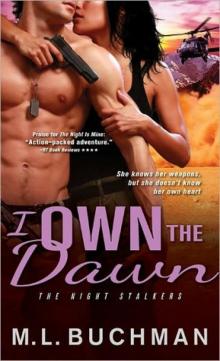 I Own the Dawn: The Night Stalkers
I Own the Dawn: The Night Stalkers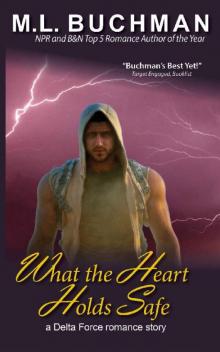 What the Heart Holds Safe (Delta Force Book 4)
What the Heart Holds Safe (Delta Force Book 4) The Christmas Lights Objective
The Christmas Lights Objective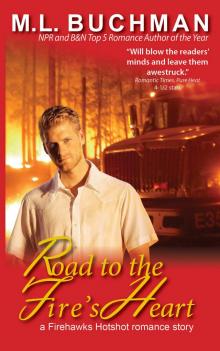 Road to the Fire's Heart
Road to the Fire's Heart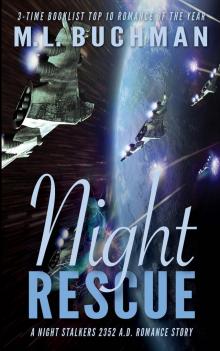 Night Rescue
Night Rescue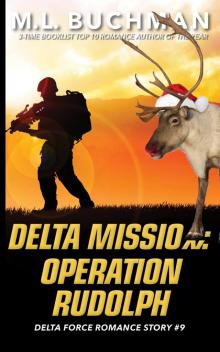 Delta Mission: Operation Rudolph
Delta Mission: Operation Rudolph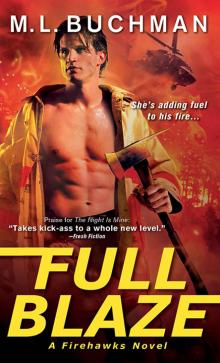 Full Blaze
Full Blaze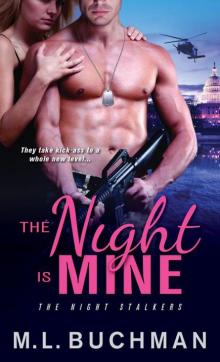 Night Is Mine
Night Is Mine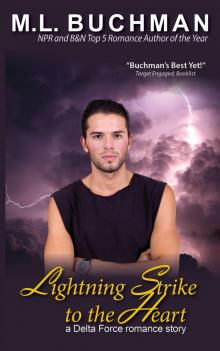 Lightning Strike to the Heart
Lightning Strike to the Heart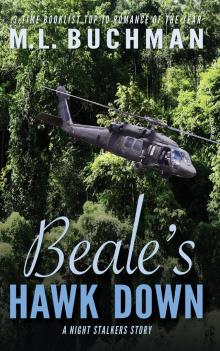 Beale's Hawk Down
Beale's Hawk Down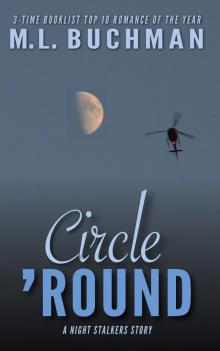 Circle 'Round
Circle 'Round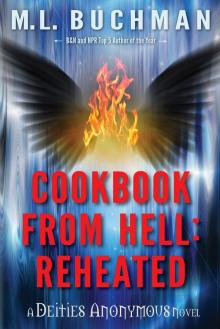 Cookbook from Hell Reheated
Cookbook from Hell Reheated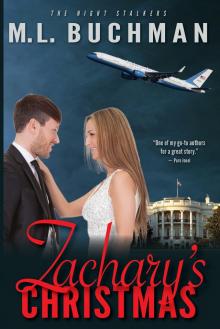 Zachary's Christmas
Zachary's Christmas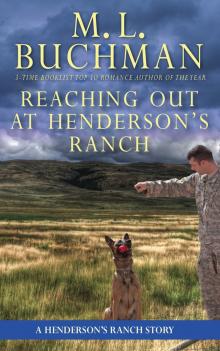 Reaching Out at Henderson's Ranch
Reaching Out at Henderson's Ranch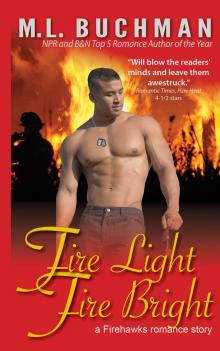 Fire Light Fire Bright
Fire Light Fire Bright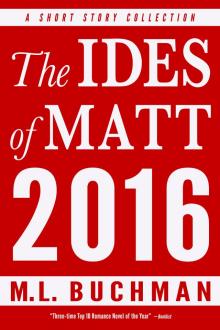 The Ides of Matt 2016
The Ides of Matt 2016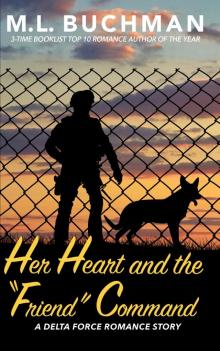 Her Heart and the Friend Command
Her Heart and the Friend Command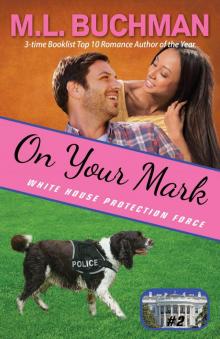 On Your Mark
On Your Mark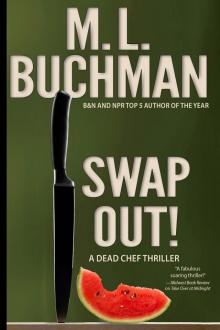 Swap Out!
Swap Out!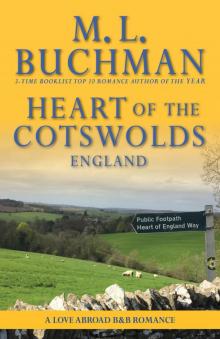 Heart of the Cotswolds: England
Heart of the Cotswolds: England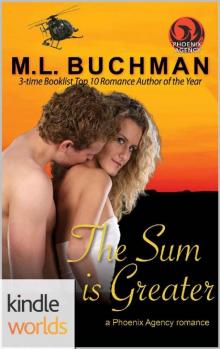 The Phoenix Agency_The Sum Is Greater
The Phoenix Agency_The Sum Is Greater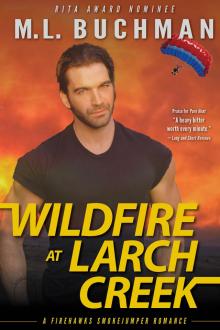 Wildfire at Larch Creek
Wildfire at Larch Creek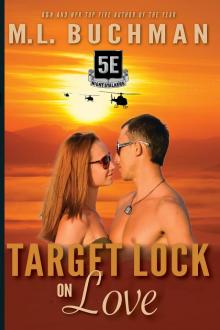 Target Lock On Love
Target Lock On Love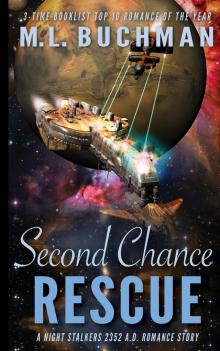 Second Chance Rescue
Second Chance Rescue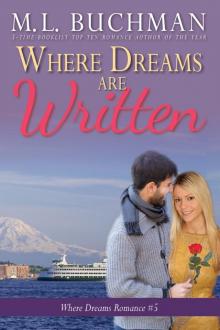 Where Dreams Are Written
Where Dreams Are Written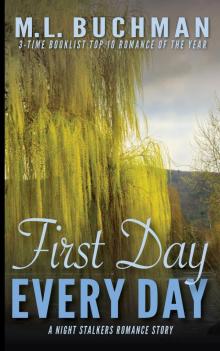 First Day, Every Day
First Day, Every Day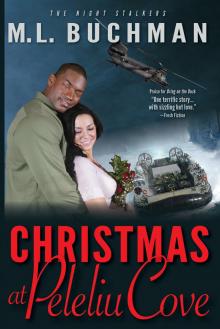 Christmas at Peleliu Cove
Christmas at Peleliu Cove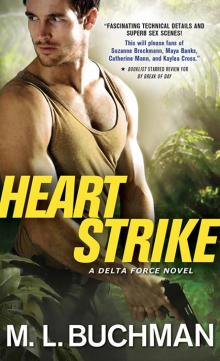 Heart Strike
Heart Strike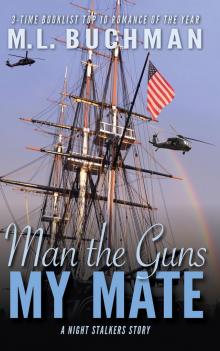 Man the Guns, My Mate
Man the Guns, My Mate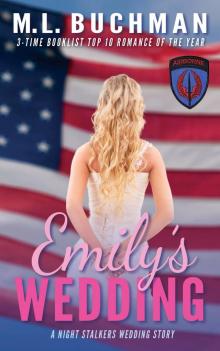 Emily's Wedding
Emily's Wedding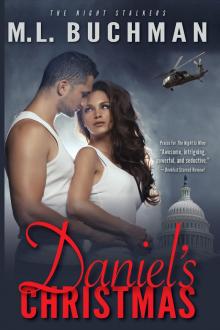 Daniel's Christmas
Daniel's Christmas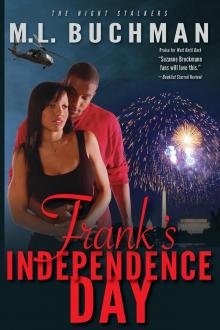 Frank's Independence Day
Frank's Independence Day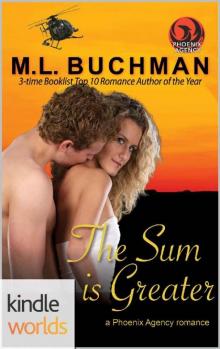 The Phoenix Agency: The Sum Is Greater (Kindle Worlds Novella)
The Phoenix Agency: The Sum Is Greater (Kindle Worlds Novella)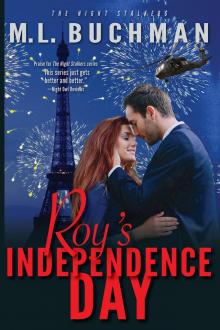 Roy's Independence Day
Roy's Independence Day